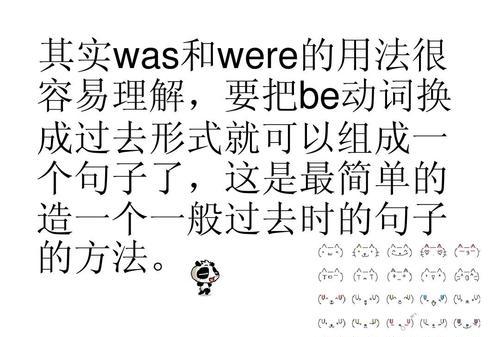在英语虚拟语气中,was和were的使用需要根据句子的意思来决定。一般情况下,was和were可以互换使用,但在正式写作中,更倾向于使用were。在表达与现在或过去事实相反的情况时,必须使用were。

一般情况下
一般情况下,虚拟语气中was和were是可以互换使用的。例如,下面两个句子的意思是一样的:
- If I were you, I would go to the party tonight.
- If I was you, I would go to the party tonight.
然而,在正式的写作中,我们更倾向于使用were,因为它更符合语法规范。
与现在事实相反的情况
当我们表达与现在事实相反的情况时,就需要使用虚拟语气中的were。例如:
- If I were rich, I would travel around the world.
- If he were here, he would help us solve the problem.
这里的were表示一个与现在事实相反的情况,所以不能使用was。
与过去事实相反的情况
当我们表达与过去事实相反的情况时,也需要使用虚拟语气中的were。例如:
- If she had known the truth, she wouldn't have married him.
- If we had arrived earlier, we would have caught the last train.
这里的were也表示一个与过去事实相反的情况,所以不能使用was。

